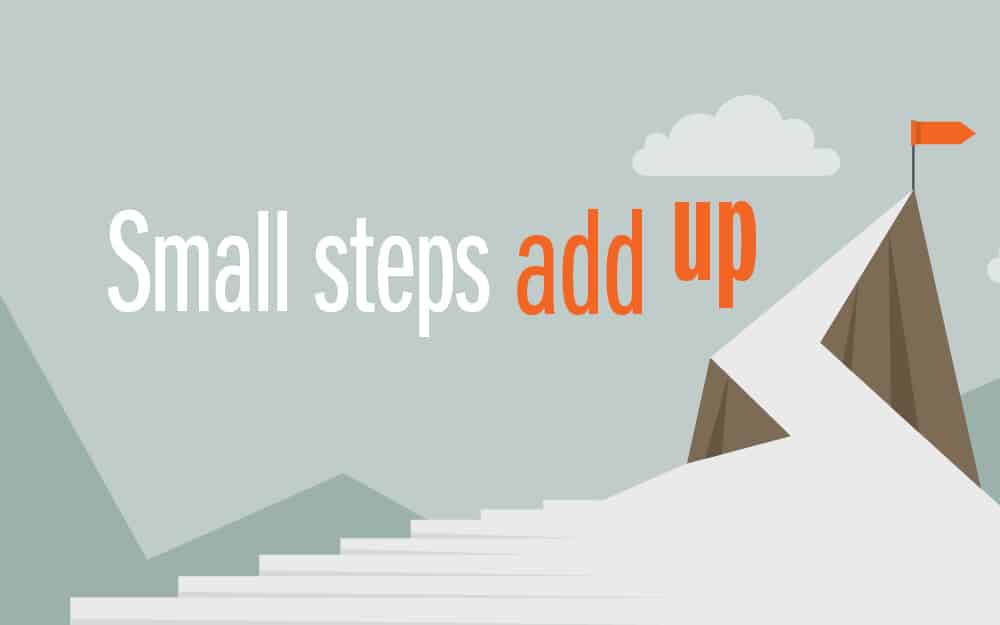Sometimes, when thinking about your long-term financial goals, they can seem so big as to be insurmountable. But the truth is, those that achieve financial success don’t usually do so by encountering a sudden windfall. Rather, they have in place a set of small habits that allow them to work towards their dreams. And by investing small amounts over the long-term, they see big outcomes.
You see it’s much like climbing a mountain. When you start your journey, the summit can seem intimidatingly far off, but with every little step you get closer to your destination.
Your finances work the same way. The small steps you take today could make a big difference in the future.
Increasing your savings through automation
They say it takes 60 days to establish a new habit. Automating a transfer into a savings account on the other hand takes all of a few minutes. Starting with a small amount that you won’t miss is the best way to go. Frequent regular payments —$50 a week is easier to bear than $200 a month—will mean you don’t feel the pinch.
When choosing an amount to set aside, you want to ensure it’s a sacrifice you can bear so that you can still enjoy the little things, and not so large as that you’ll have to dip in during the month.
As you adjust to these subtle budget tweaks, you can incrementally increase your automated savings contributions over time.
Working down debt by increasing repayments
The same principle applies for your debt repayments. Even committing to a small increase could make a big difference in how quickly you pay off your debts.
Once you’ve decided to commit a little bit more towards paying down your debt, it’s time to consider your repayment strategies. Here a few options you may wish to consider.
- Proportional method: after meeting your minimum repayments split the remaining proportionally between your debts.
- Avalanche method: list your debts in order of the size of the interest and, after meeting your minimums on all of them, pay off the highest one first.
- Snowball method: Direct all excess funds into paying off your smallest debt first. The theory goes that as the smallest one should be an easy victory, it will give you a sense of achievement. As you continue to pay off the debts from smallest to largest, this sense of accomplishment could snowball.
- Debt consolidation: In some case, you may be able to consolidate multiple debts into the one low interest account.
Everyone’s situation is different and therefore the approach to repaying your debt will depend on pathwayyour unique circumstances. We can help you figure out which method will suit you best.
Building your nest egg
No matter where you are on your journey towards retirement, small incremental additions to your super could make a big difference to the overall size of your nest egg.
A popular way to approach this is through concessional super contributions. Often called salary sacrificing, it works by your employer redirecting a portion of your pre-tax income (above the standard 9.5% contribution they already pay) towards your superannuation. This can have a number of benefits: it’s taxed at a lower rate, and money in your super account continues to generate compound interest over the long term. This can make a big difference to your nest egg when you eventually retire.
Concessional super contributions are capped at $25,000 per financial year and can be tax effective if you’re earning over $37,000.i
Sometimes the smallest financial habits are the ones that bear the most fruit over the long term. So, this year why not make some small changes that will really add up.
We can help you maintain your lifestyle while working towards your goals.
i https://www.moneysmart.gov.au/superannuation-and-retirement/how-super-works/super-contributions





































































